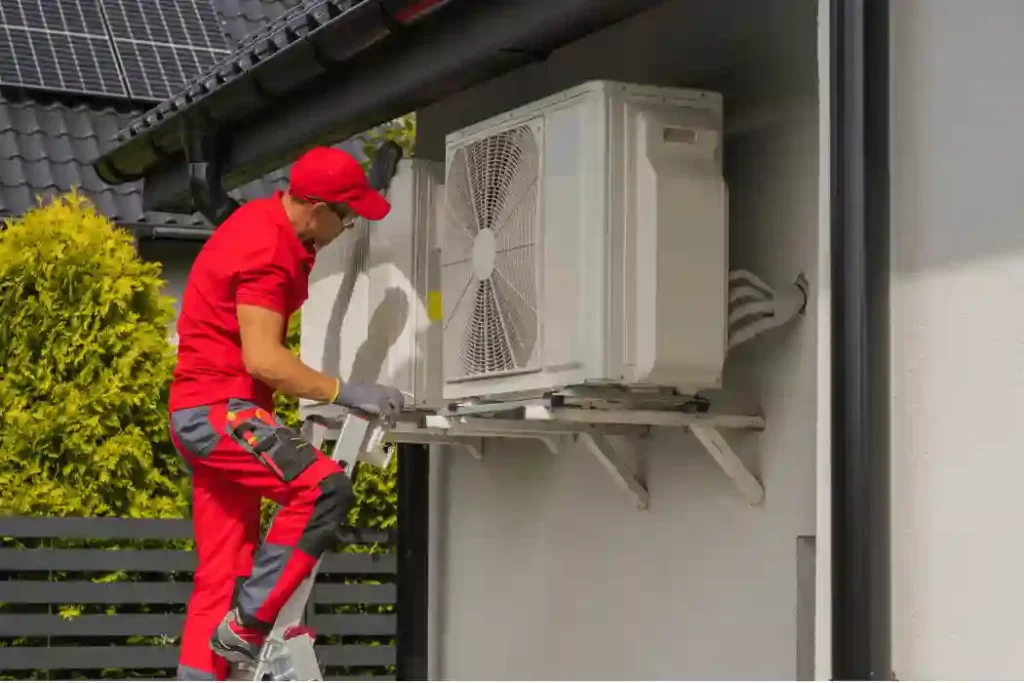In our modern lifestyles, air conditioning has become an essential part of maintaining a comfortable indoor environment, especially during hot summer months. To ensure your air conditioning unit functions efficiently and provides reliable cooling, proper maintenance is crucial. Regular maintenance not only maximizes the unit’s efficiency but also extends its lifespan, ultimately saving you money in the long run. In this article, we will explore some valuable tips to help you maintain your air conditioning unit and optimize its performance.
Introduce the topic of air conditioning and its significance in maintaining comfort and indoor air quality. Highlight the importance of regular maintenance for efficiency and cost-effectiveness.
Importance of maintaining an air conditioning unit
Explain why it is essential to maintain an air conditioning unit. Emphasize the benefits of regular maintenance, such as improved efficiency, lower energy costs, enhanced air quality, and extended lifespan.
Regular cleaning and filter replacement
Describe the importance of cleaning the air conditioning unit’s exterior, condenser coils, and replacing or cleaning the air filter regularly. Highlight the impact of dirt, debris, and clogged filters on the unit’s performance and efficiency. Incorporating a new air conditioning unit into your home renovation project can optimize indoor climate control and ensure year-round comfort for your living space.

Cleaning the air conditioner’s exterior
Explain how to clean the exterior of the air conditioner, including removing debris, leaves, and dirt. Emphasize the importance of keeping the unit free from obstructions for optimal airflow.
Cleaning the condenser coils
Describe the process of cleaning the condenser coils to remove dirt and debris buildup. Discuss how dirty coils can hinder heat transfer and reduce the unit’s cooling capacity.
Replacing or cleaning the air filter
Highlight the significance of replacing or cleaning the air filter to ensure proper airflow and prevent dust and pollutants from circulating indoors. Provide instructions on how to replace or clean the filter, depending on the type of unit.
Ensuring proper ventilation
Explain the importance of proper ventilation for efficient air conditioning. Discuss the following measures to maintain adequate airflow:
Clearing debris around the unit
Advise clearing any debris or vegetation around the outdoor unit to prevent airflow obstructions. Explain how obstructions can cause strain on the system and reduce its efficiency.
Checking and cleaning the vents and ducts
Encourage regular inspection and cleaning of vents and ducts to remove dust, dirt, and potential blockages. Describe the benefits of clean ducts in maintaining efficient airflow throughout the building.
Improving airflow with fans or vents
Suggest utilizing fans or strategically placed vents to improve airflow and distribute cool air effectively. Explain how this can reduce the workload on the air conditioner and improve energy efficiency.
Monitoring and adjusting thermostat settings
Explain the significance of thermostat settings in maintaining efficient cooling and reducing energy consumption. Provide the following tips:
Setting an appropriate temperature
Guide readers on setting an appropriate temperature that balances comfort and energy efficiency. Discuss recommended temperature ranges for different seasons.
Utilizing programmable thermostats
Highlight the advantages of programmable thermostats in optimizing energy usage. Explain how programmable thermostats allow for automated temperature adjustments based on occupancy or time of day.
Regular inspection and maintenance by professionals
Emphasize the importance of professional maintenance to ensure the unit’s optimal performance and identify potential issues before they become major problems. Provide the following information:
Hiring a qualified HVAC technician
Encourage readers to hire a qualified HVAC technician for routine maintenance and repairs. Explain the benefits of professional expertise and experience.
Scheduling regular maintenance visits
Advise scheduling regular maintenance visits with the HVAC technician to perform necessary inspections, cleaning, and adjustments. Discuss the recommended frequency of maintenance visits.
Identifying and fixing potential issues
Highlight the significance of professional inspections in identifying and addressing potential issues, such as refrigerant leaks, faulty components, or inefficient airflow. Emphasize the importance of timely repairs to prevent further damage.
Energy-saving tips for efficient operation
Provide readers with energy-saving tips to optimize the air conditioning unit’s performance and reduce energy consumption. Include the following suggestions:
Proper insulation and sealing
Highlight the importance of proper insulation and sealing to prevent cool air from escaping and hot air from entering. Discuss insulation materials, window treatments, and weatherstripping.
Utilizing natural shading or blinds
Encourage utilizing natural shading, such as trees or awnings, to reduce direct sunlight and heat gain. Discuss the benefits of using blinds or curtains to block out heat during the hottest parts of the day.
Using ceiling fans to supplement cooling
Explain how ceiling fans can complement the air conditioner by improving air circulation and creating a perceived cooling effect. Discuss the correct fan direction and usage.
Optimal usage practices
Educate readers on optimal usage practices to ensure efficient cooling while minimizing energy consumption. Include the following tips:
Avoiding excessive usage
Advise against running the air conditioner unnecessarily or setting the temperature too low. Encourage users to turn off the unit when leaving the room or when it’s not needed.
Minimizing heat-generating activities
Suggest minimizing activities that generate heat, such as using heat-generating appliances during peak cooling hours. Discuss the impact of these activities on the air conditioner’s workload.
Utilizing zoning or individual room controls
Explain the benefits of zoning systems or individual room controls to tailor cooling based on specific needs. Discuss how this approach can improve comfort and energy efficiency.
Conclusion
Summarize the key points discussed in the article, emphasizing the importance of regular maintenance, proper ventilation, thermostat management, professional inspections, energy-saving practices, and optimal usage. Reinforce the benefits of maintaining an air conditioning unit for efficiency, comfort, and cost savings.

